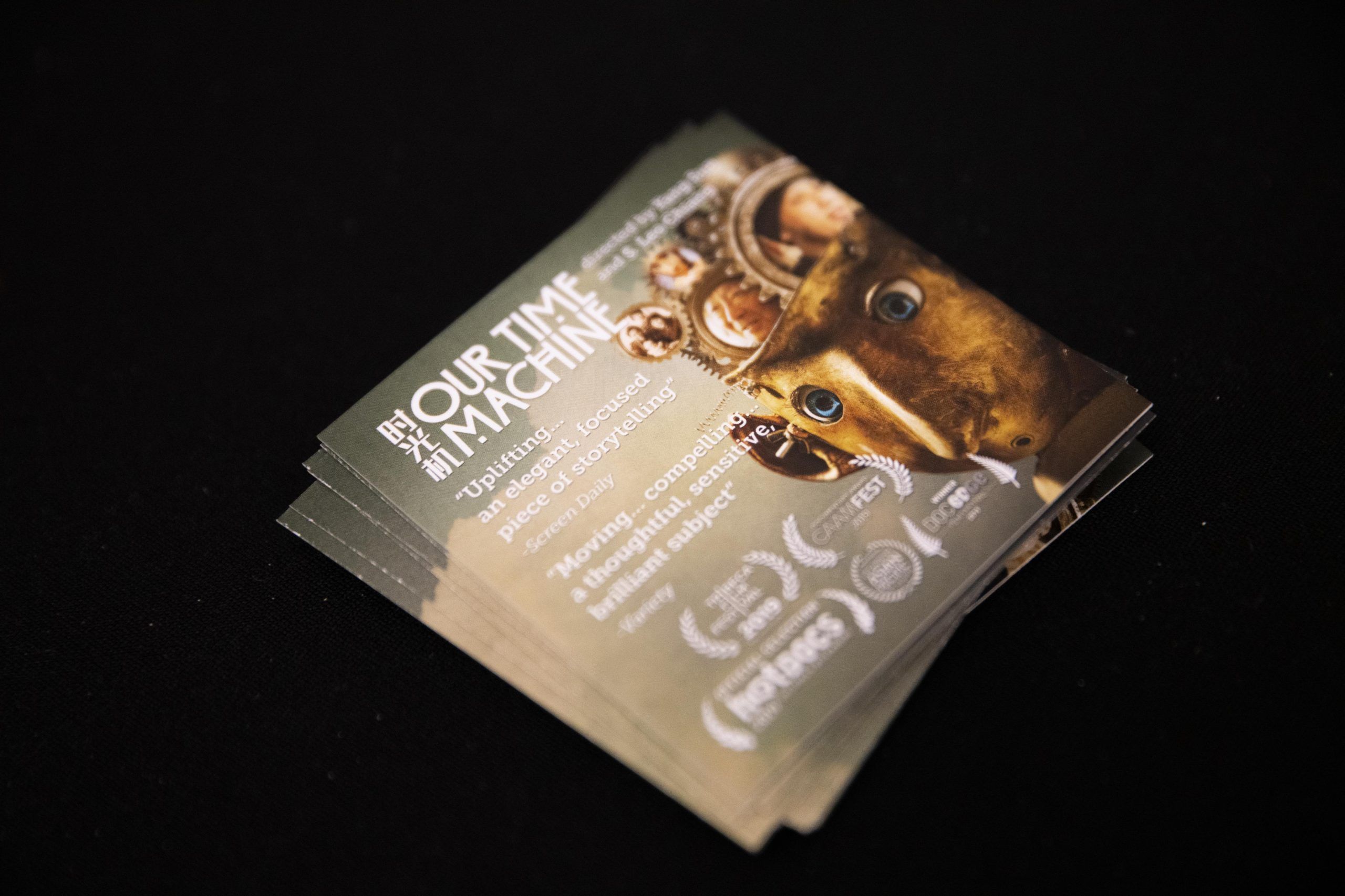
“Our Time Machine” Screening Reflects on Art and Memory
What would you like to hold on to forever?
For 43-year-old Maleonn, an influential conceptual artist in China and the focus of the documentary “Our Time Machine,” it’s his father. A 2019 film directed by Yang Sun and S. Leo Chiang, “Our Time Machine” follows Maleonn’s journey of putting up a play in honour of his father, and archiving what it means to try and keep something you know fundamentally that you cannot. On Wednesday, January 22, 2020, International House Residents were treated to a screening of the documentary as it continues to make festival rounds.
The film chronicles Maleonn, a serious but goofy (and very driven) man who is well-known in China for his intricate photography projects. His father, Ma Ke, has partially inspired his son’s drive, having directed over 80 productions at the Shanghai Opera. Sadly, Ma Ke has been living with Alzheimer’s and has started to lose his memory. It is this that spurs Maleonn into a new and staggering project, a time travel play called “Papa’s Time Machine,” that will use life-sized puppets and be dedicated to his aging father.
The opening screen of the film quotes H.G. Wells: “We all have our time machines, don’t we. Those that take us back are memories…And those that carry us forward, are dreams,” before catapulting into a dream-like sequence of light-box shadow play and puppetry with a voiceover questioning how to welcome a child into the world. The interplay of these elements is part of what makes the film visually gripping.
“The puppets needed to be a character in the film,” said director and producer S. Leo Chiang in a Question and Answer session after the screening. He was joined by the film’s executive producer, Jean Tsien, to talk about what’s next for the film. The team is hoping to use the film as an educational tool for families who are living with a loved one with Alzheimer’s.
We learn from his interview in the film that Maleonn had promised a project to Ma Ke. We see Maleonn recall a moment in a swimming pool while he was doing laps; and every time he’d make it around to his father, Ma Ke would ask him the same question: an early indication of his short-term memory declining. “We suddenly realized that forever doesn’t exist,” Maleonn said.
On screen, the directors capture Maleonn’s determination to harness the magic of fatherly love and attention, and what that can mean to a child, through his play. It is hard going. Funding is tight and complicated, and deadlines keep being extended. All the while Ma Ke is losing more and more of his memory, as we see through documented doctor’s appointments where he can not remember the day or year that it is.
During moments of up-close puppet construction, the film shows how Maleonn’s vision for his play included complex mechanical beings to bring his science-fiction story to life. In the play, a young boy has built a time machine to access his father’s fading memory. Throughout the play, the father waits for an airplane’s imminent arrival. The airplane symbolizes death.
“Art is like love,” Maleonn says in the interview. “It’s a daily torture but you keep going. You don’t really have a choice.”
We learn that both of Maleonn’s parents worked in theatre for most of Maleonn’s life. They were stopped during the Cultural Revolution, but took up their passion again as soon as they were able. Part of what drew the directors to make the film was how Maleonn and his parents came of age on either side of the Cultural Revolution.
The panelists spoke to the challenges of including information on the Revolution, considering it was important for the team that the film show in China. Chiang and Tsien described going back and forth in the editing room trying to find a visual that could lay underneath the voice-over story of Maleonn’s parents and get approved. In the end, what went through was a fight scene from an opera, which was ultimately quite fitting considering Ma Ke’s work.
“I direct humans, he directs robots,” Ma Ke says after seeing a preview of Maleonn’s play.
Throughout the film we see Maleonn wish for and then propose to his now-wife, Tianyi, who was brought on as a co-director for the play. The theatrical team puts up a short run in Shanghai and Ma Ke goes to see it, no longer a consultant on the show because of his health. We see him congratulate his son, and compliment him, only a few moments later to learn he was forgotten he saw the show at all.
In the end, Maleonn accepts and understands that life is a circle. Tianyi gives birth to their daughter, and at a 100-day celebration of life, Maleonn introduces the baby again and again to his father. Maleonn speaks during the interview about the beauty in the repetition, and the joy of getting to introduce his father to his granddaughter over and over and have him be equally excited. He remembers the swimming pool moment, and how he was frustrated then, but now sees beauty in the way life continues to cycle.
The film has won multiple awards, including “Best Cinematography in a Documentary Film” at the TriBeca Film Festival and the “Grand Jury Award, International Documentary Feature” at the LA Asian Pacific Film Festival. It will be screening again in New York in March. “Our Time Machine” is a must-see and sure to resonate among all who have loved a child or parent.
Stephanie Philp is currently pursuing a Master’s of Fine Arts in Creative Writing (Nonfiction) at Columbia University School of the Arts. Previously she was an intern with the National Magazine Awards Foundation, where she wrote for the Magazine Awards and Digital Publishing Awards blogs. Read more by Stephanie on her blog and follow her on Twitter @MsPhilp.